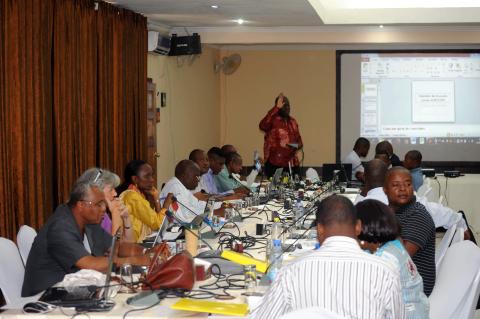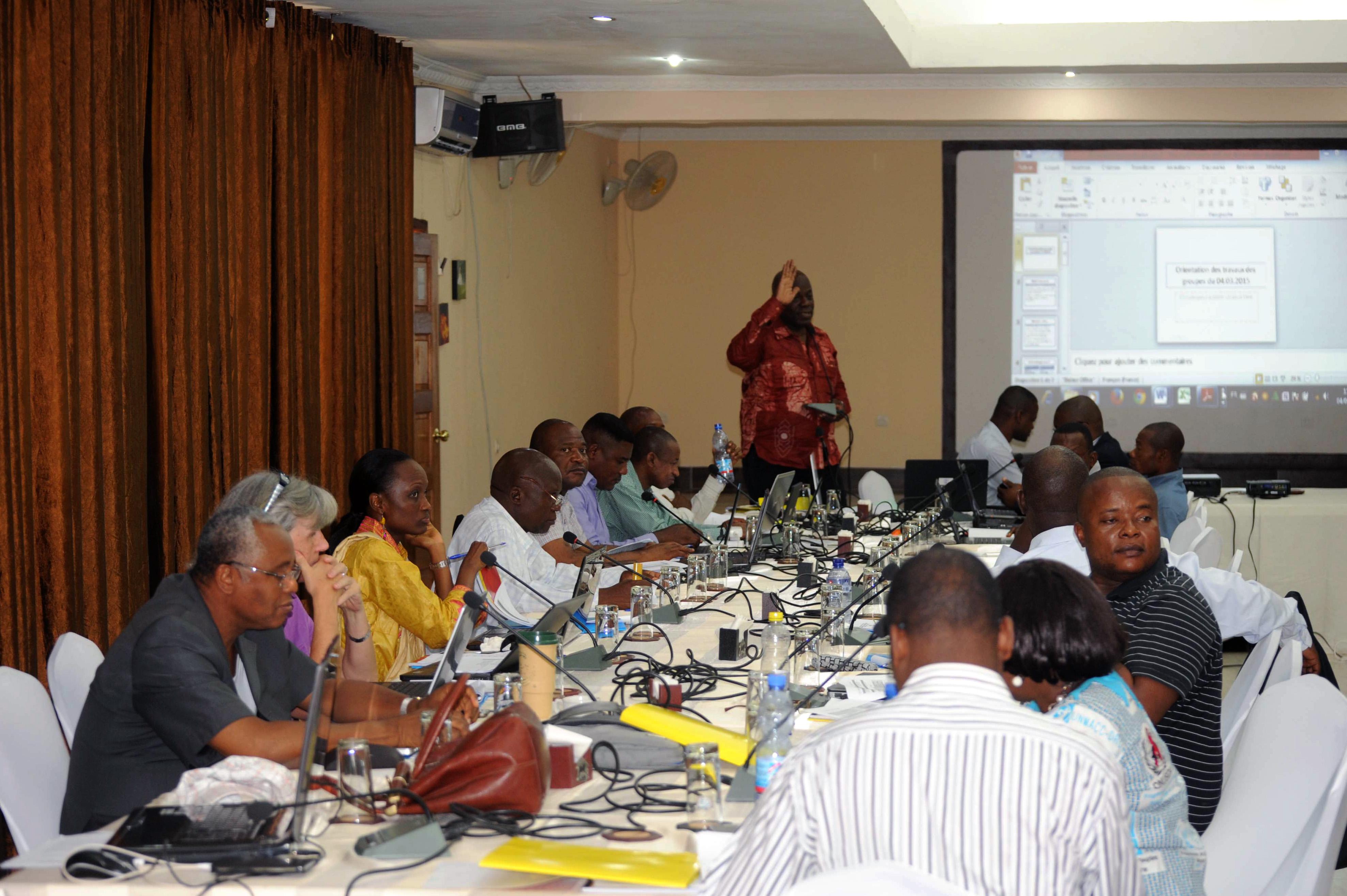
The Democratic Republic of Congo’s National Health Development Plan was finalized on March 31st, 2016, and adopted four months later by the Council of Ministers under the Chairmanship of Prime Minister Augustin Matata Ponyo. One of the most pressing objectives under this new plan, set with support from the World Health Organization, is administrative decentralization: the transfer of responsibilities, skills, and resources towards the provinces.
“This process is made all the more complex as the administrative subdivision of 11 provinces into 26 occurred relatively recently”, explains Dr. Alain Iyeti Mboko, Director of the Ministry of Health’s Department of Studies and Planning. The Ministry of Health is responsible for leading health sector decentralization efforts, as set out by the country’s constitution.
Since 2015, the EU-Luxembourg-WHO Universal Health Coverage Partnership (UHC Partnership) has supported the implementation of a ‘coaching’ program, which deploys national technical assistants to help build the capacity of the newly-established Provincial Health Offices to provide healthcare services to the population. The UHC Partnership has funded 12 out of the 26 provinces to receive technical assistance (funding for the remaining 14 is provided by various other health sector partners including UNICEF, the European Union, USAID, GAVI and DFID). A countrywide study is now examining the strengths and weaknesses of this coaching program, to draw lessons for the future.
After a review of each province’s plan of action, an essential step to reinforcing the provincial health system is to conduct sectoral dialogues on decentralization. The staff running provincial offices often have no prior administrative experience; as a result, the delicate balance between administrative demands, political realities, and the specific requirements of local health implementation activities can become a source of tension.
Provincial Governors in the DRC “wear two hats”, according to Dr. Iyeti Mboko. “The Governor is the local authority, elected by local deputies, and this makes him the head of the executive branch in the province. At the same time, he represents the decentralized authority of the state, at the provincial level.” The boundary between these two functions can be blurry, and careful dialogue is necessary to build consensus on the roles of different stakeholders at the provincial level.
Each of the 26 provinces undergoes two sectoral reviews per year. At the national level, a single yearly review brings together all national stakeholders (with the next review scheduled for July 2017). Every year, on the sidelines of this meeting, the health sector convenes a meeting of the National Health Systems Steering Committee, a coordinating body, to make concrete decisions on the most important issues impeding healthcare delivery.
In these exchanges, whether at the national or provincial level, WHO plays a supporting role aside the Ministry to ensure the coordination between all active stakeholders in the healthcare sector, maintaining a sufficiently active policy dialogue to take such a broad variety of needs into account. “In the DRC, the WHO is a leading player in promoting governance and accountability”, Dr. Iyeti Mboko concludes.
